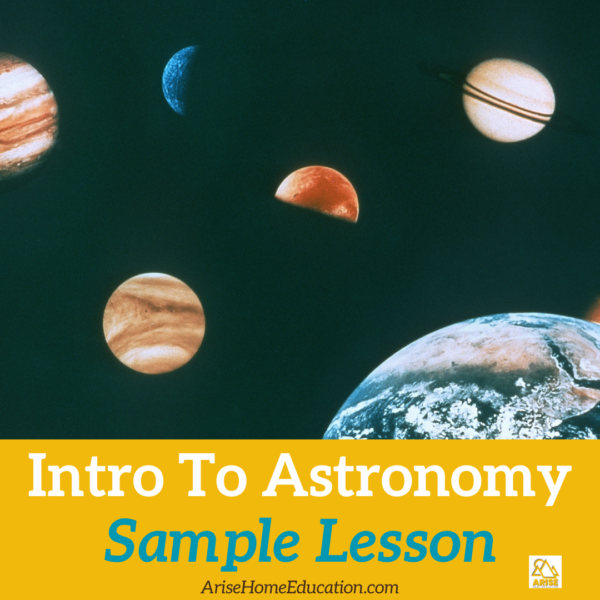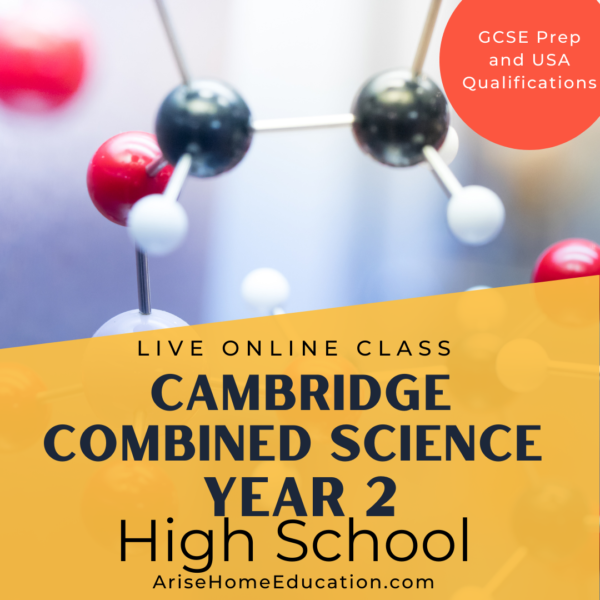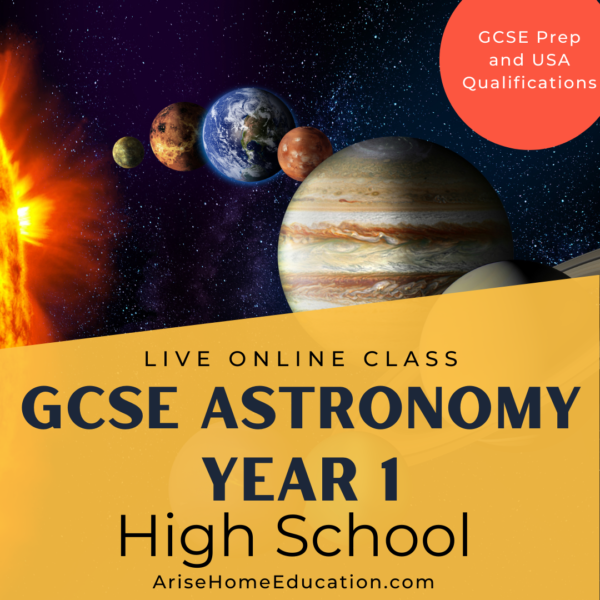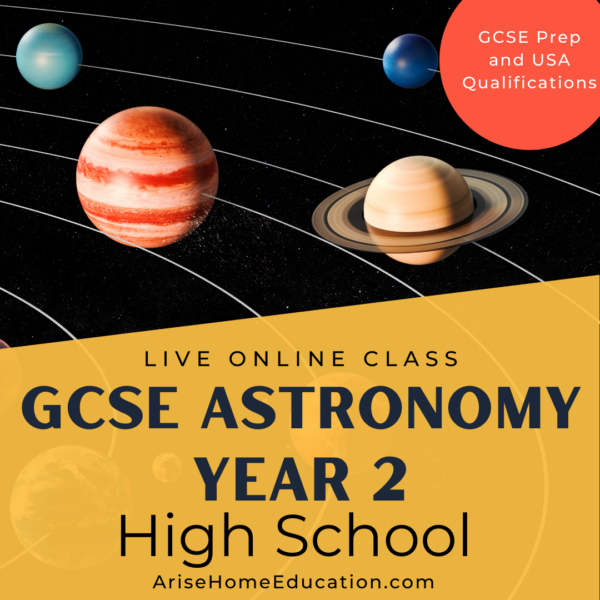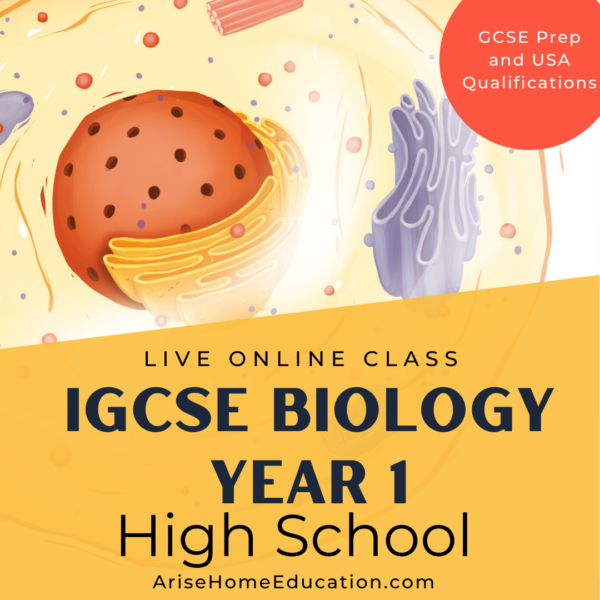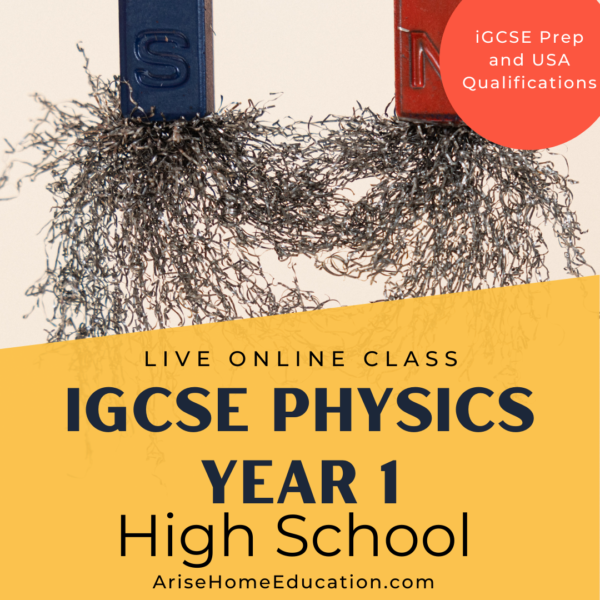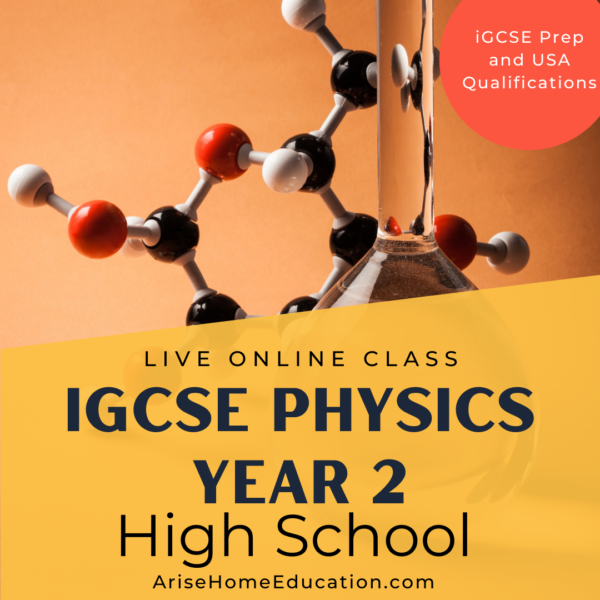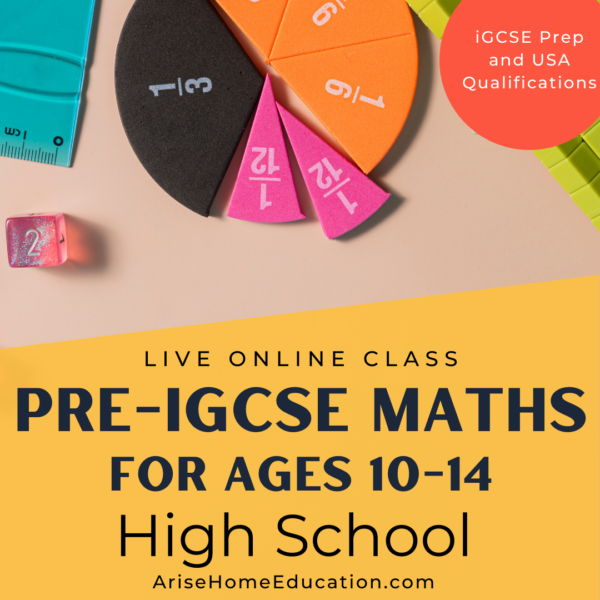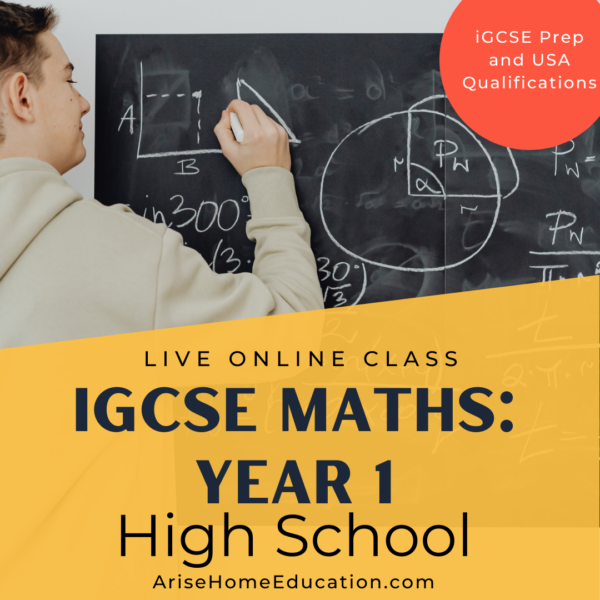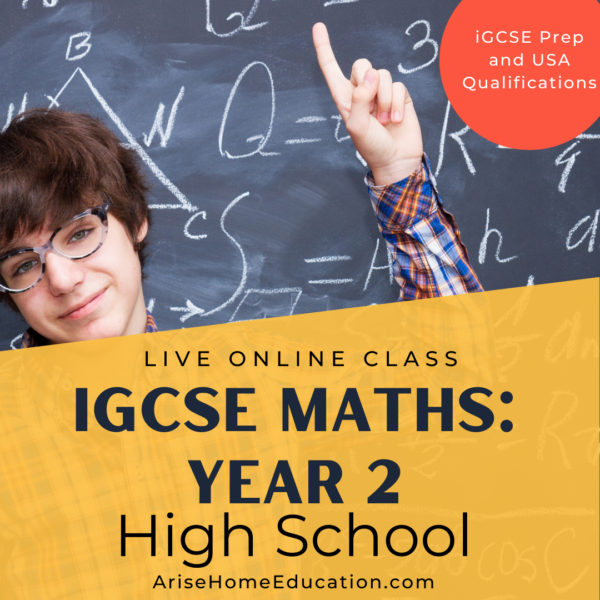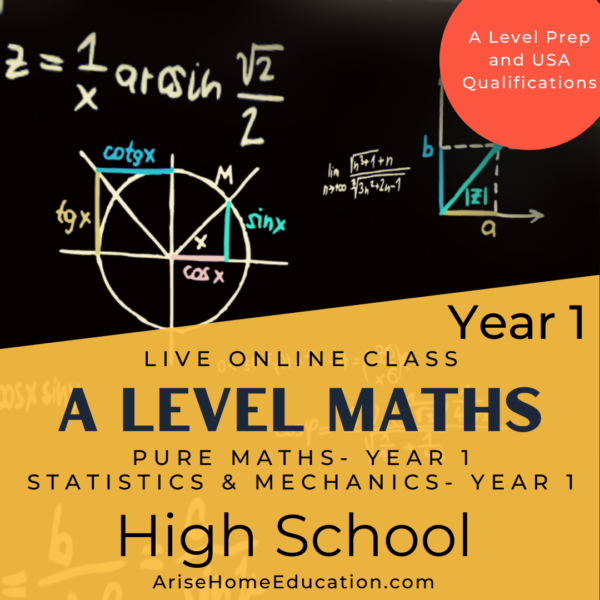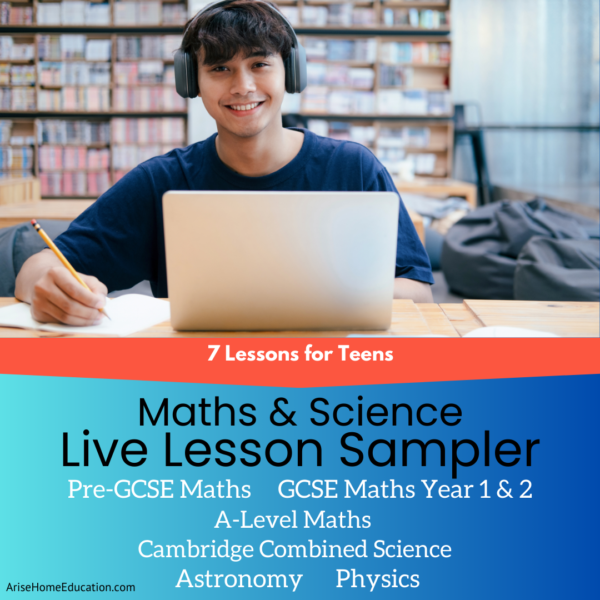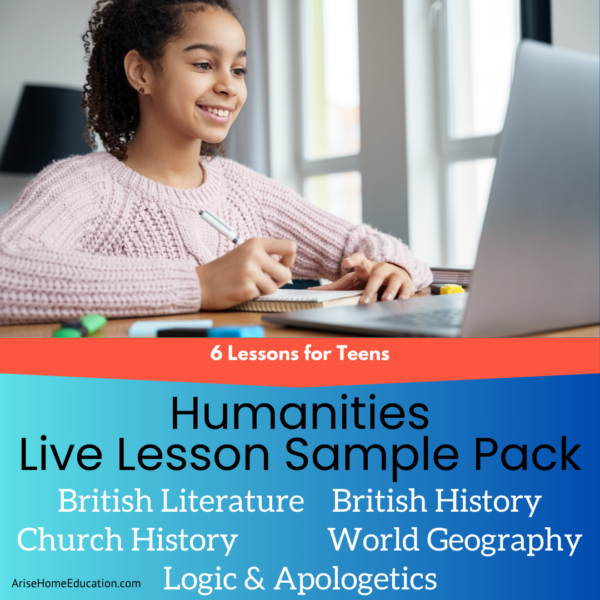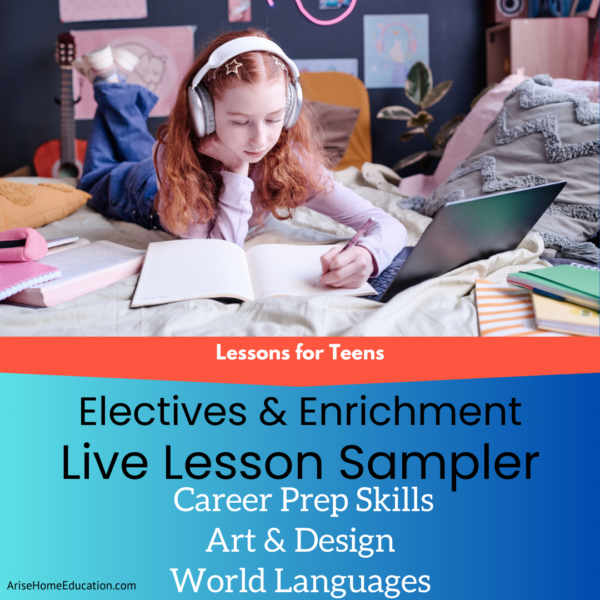High School Science and Math Skills for Homeschoolers
This article was written by Hannah Smith. She will be tutoring for A Level Maths, Combined Sciences, Physics, Astronomy, Chemistry, Biology, and Pre-iGCSE Maths. She is passionate about making math skills for high school science fun to learn.
A complementary level of math skills for high school science is vital, whether you are following the UK exam model or the USA qualification model (transcript/credits and diploma). Mathematics plays a crucial role in GCSE Sciences for high school students following the UK model.. Whether studying Biology, Chemistry, or Physics, students must be confident in applying key mathematical skills to analyse data, interpret results, and use critical thinking skills to solve problems. These key skills are needed for expanding math concepts and science skills to achieve academic success. For home-educating families, ensuring students develop these skills is essential for success in their secondary education and future science studies. As Christians, we also recognise that the ability to reason, problem solve, and understand the world around us is more than an academic subject; it is a gift from God, and these skills help us steward the knowledge He has given us.
At Arise Home Education, we recognise the importance of integrating maths into our science teaching, helping students build confidence and fluency in essential skills with real world learning.

Confused about how GCSE Maths lines up with the US Qualifications Model? Let’s break it down.
- iGCSE Maths Year 1 = Algebra 1 and Geometry part 1
- iGCSE Maths Year 2 = Geometry part 2 & Algebra 2
- Scottish (SQA) Higher Maths and AS/A Level Maths = Trigonometry & Calculus, and more.
Math Skills for High School Science Success
Here are some of the most important areas of maths that students need for GCSE Science and how families can develop them in everyday life.
1. Handling Data and Graphs
Students must be able to:
- Read and interpret data from tables and graphs
- Plot graphs accurately, including line graphs and bar charts
- Identify trends and draw conclusions from data
- Understand and apply the concept of correlation
Practical science often involves analysing experimental results, so the ability to interpret graphical data is crucial. Encouraging students to practise drawing and analysing graphs will help them feel more confident in exams. It can also be helpful to look for graphs and charts in everyday life, such as on the news or in articles, and discuss them with your children to build their confidence in interpreting real-world data. As Christians, we can marvel at how God has designed the world to follow patterns that we can study and understand through maths.
2. Using and Rearranging Equations
Science involves a range of formulae, from speed calculations in Physics to concentration equations in Chemistry. Students taking science courses should be comfortable with:
- Substituting values into equations
- Rearranging equations to find an unknown variable
- Using the correct units in calculations
When considering a complementary math class, keep in mind that a strong foundation in basic algebra helps students manipulate equations effectively. Practising rearranging and solving equations will make scientific problem-solving much easier. Good math instruction will provide a solid foundation in middle school (early secondary for the UK) with classes like pre-iGCSE Maths. This allows for basic math skills to improve while letting your student fill knowledge gaps.
Families can incorporate real-world problems by looking for opportunities to apply algebra in daily life, such as calculating discounts while shopping, figuring out cooking measurements, or estimating travel time based on speed and distance. Through these everyday tasks, families can model the joy of learning and problem-solving as part of God’s creation.
3. Working with Units and Conversions
Scientific measurements use standard units, and students must be able to:
- Convert between different units (e.g., millilitres to litres, grams to kilograms)
- Use SI units correctly (e.g., metres, seconds, newtons)
- Recognise and apply standard prefixes (e.g., kilo-, centi-, milli-)
Understanding unit conversions is essential for accurate scientific calculations, especially in Chemistry and Physics, and provides a strong number sense and understanding of conversions.
Families can practice this by converting units when cooking (e.g., converting millilitres to litres for recipes), measuring distances for travel (e.g., converting kilometres to miles), or even comparing weights and lengths in different units while shopping. These skills help students see how God’s creation is measured and structured, deepening our understanding of the world He has made. They are perfect for early secondary/ middle school grade level learning.
Sample Lessons
-
Astronomy Sample Lesson: Intro to Astronomy Curriculum
Original price was: £9.00.£0.00Current price is: £0.00. -
iGCSE Maths Sample Lesson
Original price was: £5.00.£0.00Current price is: £0.00.
4. Calculating Averages and Percentages
Students need to be confident in:
- Finding the mean from a set of results
- Calculating percentage increases or decreases
- Understanding percentage yield in chemical reactions
Being able to process numerical data efficiently is key to analysing scientific experiments and evaluating accuracy while learning science concepts. Families can practise this skill by looking at things like budgeting or tracking household expenses, or comparing prices while shopping. These real life activities provide valuable practice in thinking critically and managing resources wisely, a principle found in the biblical call to be good stewards of what we’ve been given.
5. Estimation and Orders of Magnitude
A good scientist must recognise when an answer is reasonable. This involves:
- Estimating answers before performing calculations
- Using orders of magnitude to compare values
- Rounding numbers appropriately
Estimation skills help students check their work and avoid errors in complex calculations. Being proficient in this skill is also a great way to improve scores on mathematics achievement tests.
Families can practise this somewhat advanced math skill by estimating the cost of a shopping trip before checking the total, approximating the time it will take to travel somewhere, or roughly measuring the amount of ingredients needed for a recipe. Estimation reflects God’s wisdom in creation, where everything is thoughtfully measured and planned, encouraging us to approach our work with care and accuracy.
6. Ratios and Proportions
Many scientific concepts rely on ratios, such as:
- Balancing chemical equations
- Calculating reaction rates
- Understanding genetic probabilities in Biology
A clear conceptual understanding of ratios helps students make sense of relationships between different scientific quantities. Families can practise this in several different ways in their homeschool and daily life. Here are a few examples:
- by looking at recipes (e.g., doubling or halving ingredient amounts),
- mixing paint colours in certain ratios.
Ratios remind us of the harmony and balance in creation, where relationships between things are often proportional and purposeful.
7. Probability and Statistical Analysis
Probability plays a role in topics like:
- Genetic inheritance and Punnett squares in Biology
- The reliability of experimental results
- Understanding error margins in scientific measurements
Basic statistical awareness enables students to evaluate data with confidence and precision, providing the necessary skills for those entering a data science career.. Even career paths in the social sciences require an understanding of statistics and probability.
Families can practise this by analysing sports scores, tracking trends like changes in temperature or rainfall, or even comparing product reviews and ratings to make informed decisions. Field trips to science museums at even art activities help reinforce math skills in real-world settings. Through understanding probability, we see how God’s plan is unfolding in our lives, even when we can’t always predict every outcome.
Math Skills for High School Science Success
Mathematical skills are a fundamental part of GCSE Science, and building confidence in these areas will help students approach scientific problems with clarity. At Arise Home Education, we integrate maths into our science teaching to ensure students gain a solid foundation in both subjects. As we teach these skills, we are reminded that all wisdom and knowledge come from God, and we are called to steward these abilities for His glory.
By developing these skills through practice and real-world applications, students will not only excel in their science exams but also gain valuable problem-solving abilities that extend beyond education. If you’re looking for structured, faith-based support in GCSE Science, get in touch with us to find out more about our live online courses.
High School Science Courses
-
Cambridge Combined Science Year 1
£340.00 -
Cambridge Combined Science Year 2
£340.00 -
High School GCSE Astronomy: Year 1
£340.00 -
GCSE Astronomy: Year 2
£340.00 -
Astronomy Curriculum: A Self-Paced Introduction for High School
£70.00 -
iGCSE Biology Year 1
£340.00 -
iGCSE Chemistry Year 1
£340.00 -
iGCSE Physics Year 1
£340.00 -
iGCSE Physics Year 2
£340.00
Middle & High School (Secondary) Math Classes for Science Success
-
Pre-iGCSE Maths
£340.00 -
iGCSE Maths: Year 1
£340.00 -
iGCSE Maths: Year 2
£340.00 -
Higher Maths SQA
£440.00 -
AS/A Level Maths Year 1
£780.00
Are Arise Live Classes A Good Fit For Your Teen?
Grab a live lesson bundle and learn about the course, the tutor, and the weekly homework load.

